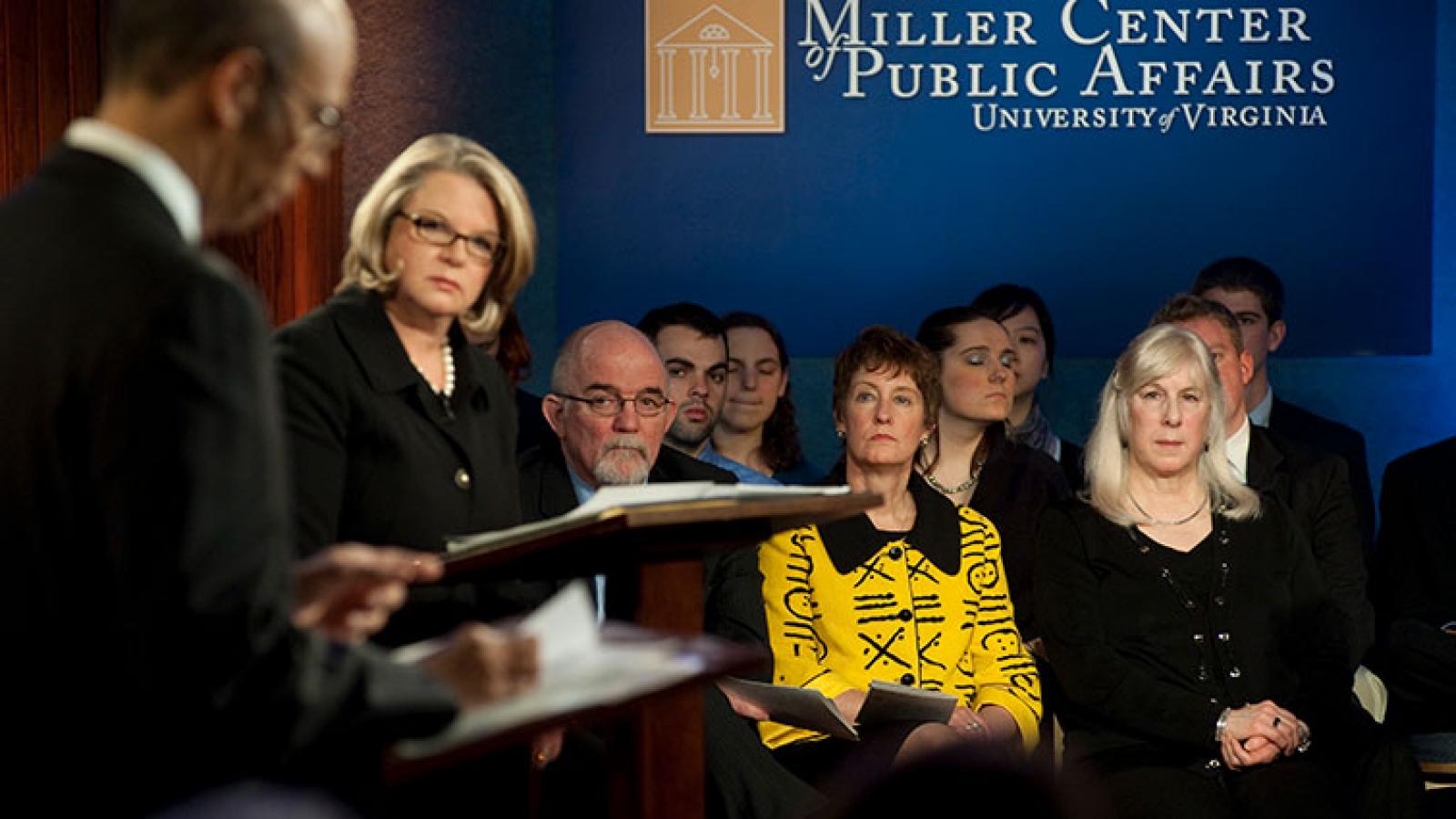Education and the Economy: National Discussion and Debate Series
The rapid growth of China, India, Brazil and other emerging powers has dramatically altered the complexion of the global economy in recent years. At the same time, rising deficits, high trade imbalances, a declining dollar, and a lingering economic downturn have placed America's position within the global economy in peril--and have policymakers deliberating over the keys to America's economic future. One area often cited as critical to the nation's future economic strength is higher education, particularly that America must dramatically increase the number of college-educated citizens to remain a leading economic power.
Resolved: To remain a world class economic power, the U.S. workforce needs more college graduates
Arguing for the resolution:
Margaret Spellings, U.S. Secretary of Education from 2005 to 2009, is the President and CEO of Margaret Spellings and Company and a leading national expert in public policy. Spellings also serves as Senior Advisor to the U.S. Chamber of Commerce, Executive Vice President of the National Chamber Foundation, and Senior Advisor to the Boston Consulting Group. Her prior positions include White House Domestic Policy Advisor (2001-05) and Senior Advisor to Governor George W. Bush (1995-2000).
Michael Lomax is the President and CEO of the United Negro College Fund-the nation's largest and most effective minority education organization. Immediately before joining UNCF, he served seven years as President of Dillard University in New Orleans. He taught literature at Morehouse and Spelman Colleges and the University of Georgia. He served as the first head of the Atlanta Bureau of Cultural Affairs and was elected to the Fulton County Board of Commissioners, serving as its first African-American chair.
Arguing against the resolution:
Richard Vedder is the Director of the Center for College Affordability and Productivity--an independent higher education think tank in Washington, DC. He is also Distinguished Professor of Economics at Ohio University and an adjunct scholar at the American Enterprise Institute. Vedder served on the Secretary of Education's Commission on the Future of Higher Education and has authored eight books, including Going Broke By Degree: Why College Costs Too Much. Vedder's upcoming book is tentatively titled Universities and Human Welfare.
George Leef is Director of Research at the John William Pope Center for Higher Education Policy in Raleigh, NC. He was previously on the faculty of Northwood University and a policy adviser in the Michigan Senate. Since 1996, he has served as book review editor of the Foundation for Economic Education's magazine, The Freeman. Leef is the author of Free Choice for Workers: A History of the Right to Work Movement, and editor of Educating Teachers: The Best Minds Speak Out.
Moderator:
Paul Solman has been a business, economics and occasional art correspondent for PBS NewsHour since 1985. He answers viewer questions on The Business Desk. He is also the presenter for and author of "Discovering Economics with Paul Solman," a series of videos distributed by McGraw-Hill. Solman is part of a national consortium to teach "Financial Literacy" to Americans at every educational level. His work has won various awards, including several Emmys, two Peabodys, and a Loeb award.
